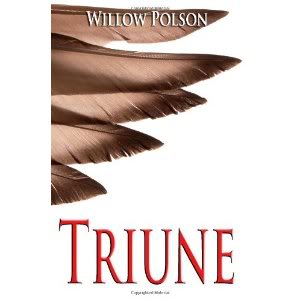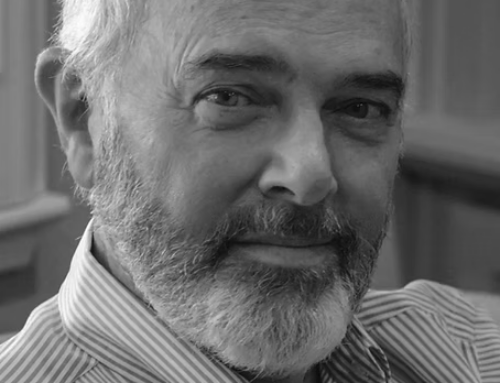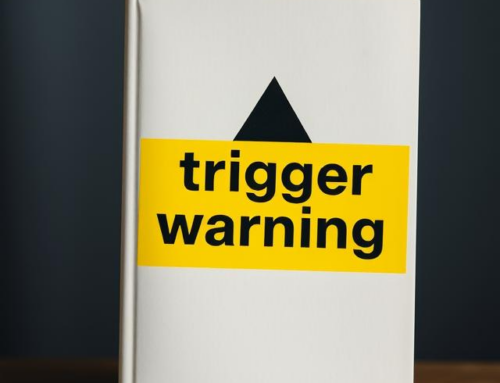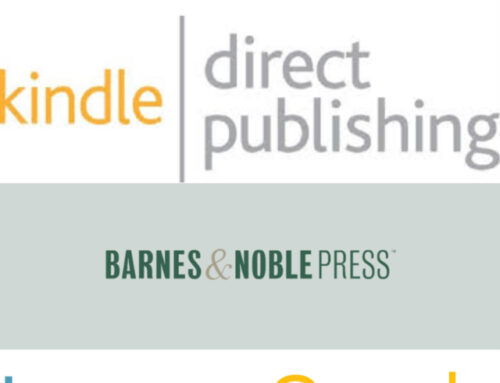 As with everything on the interwebtubes, I discovered SPR through a series of clicks. I saw that a fellow author, R.J. Keller, had “Liked” my Facebook page for Triune, and she was a mutual friend with fellow author Rob Kroese of Mercury Falls fame, so I looked at her website, which brought me to Backwords Books, which led me here. I love how all this stuff works, and I can see the writing on the wall (no pun intended).
As with everything on the interwebtubes, I discovered SPR through a series of clicks. I saw that a fellow author, R.J. Keller, had “Liked” my Facebook page for Triune, and she was a mutual friend with fellow author Rob Kroese of Mercury Falls fame, so I looked at her website, which brought me to Backwords Books, which led me here. I love how all this stuff works, and I can see the writing on the wall (no pun intended).
Traditional publishing is either one big gentlemen’s club or the Cretaceous Period, or perhaps both in the form of a wood-paneled room where dinosaurs smoke cigars and wear top hats. And you know, I’d pay to see that. But that’s not why I’m posting here. So, without further ado ~
1. How did you come to self-publish? Did you try to get published traditionally?
I have five traditionally-published non-fiction books out, and before that I was an editor for ten years at a magazine publishing house, so I’m familiar with the process. But what I began to discover when attempting to send out queries to both agents and publishers for Triune is that they’re buying to current trends only. They’re not trying to anticipate the market, not looking to work with great new authors, and not even looking beyond the first two pages of a manuscript, in some cases. If you don’t have a Michael Bay vampire zombie movie right out of the gate, forget it.
Sorry, agents, but I have a slow build-up in the first chapter for a reason. It’s called moving the reader from mundane reality into the fantastic. I suppose this is one of the reasons Harry Potter got so many rejection letters (some of them quite condescending) until Scholastic finally picked it up. I think the most amusing rejection I got for Triune was that it “didn’t have enough world-building.” Considering that it intentionally takes place in the real world as an urban/contemporary fantasy, this one didn’t just miss the point, it missed the broad side of the barn.
Agents and publishers today are so trapped in their own formulas that they’re suffocating themselves. It’s pretty sad, honestly.
2. What self-publishing service did you use? Happy with the service?
I’ve used both CreateSpace and Kindle, and I’m basically happy with the service. I think some things could be a little more clear and streamlined, but I’m nitpicky.
3. What avenues have you taken to market the book? Have you gotten reviews, interviews, TV, print media coverage?
Triune has only been out, as of this writing, for a couple of weeks. I’m still working hard on all of these avenues (waves at everyone reading this), including an interview this Friday on Book Chatter and my web of contacts in both publishing and the entertainment industry.
I can’t stress enough that the old adage is true: It really is who you know. Cultivate friendships, network with everyone, talk to people, take chances. If you look at my Facebook page, you’ll see me with some notable people. These contacts didn’t happen overnight, it took three years to get the chance to talk to Tim Kring, for example, and we ended up chatting for three hours and then sharing a cab. I have his mailing address, and I’ll be sending him a signed copy of Triune. Will he read it? Will he like it? Will he recommend it to anybody? Who knows, but I can get my book into the hands of the man who created NBC’s mega-hit show Heroes, and that’s worth far more than buying space in Google AdWords.
4. What drove you to write this particular book?
Heroes, and the market being swamped with darkness and gore. I fell in love with Heroes because it gave a vision of hope; that ordinary people could do extraordinary things and maybe just save the world one person at a time. Heroes is gone, but that spark remains and needs to be fed. I’ve never liked the horror genre, and I think there’s so much of it in the world right now that we need an antidote. Something fantastic, and beautiful, and hopeful with likable characters, as opposed to the current wave of vampires, zombies, violence, and blood and guts. Even comic books, more and more, are pushing the limits of gore, with people ripping other peoples’ intestines out and ripping heads off, and it sickens me. Enough is enough, and I’ve encountered a huge number of people who agree.
5. Is the book in any one particular genre? Is it a genre that’s familiar to you?
I’d classify this as contemporary or urban fantasy.
6. Who are your greatest writing influences?
The first book I remember reading was The Lion, the Witch and the Wardrobe when I was five years old. Later I fell in love with Anne McCaffrey’s Pern novels, the Camber of Culdi novels that came out when I was in high school, and so on. Like many, I liked Lord of the Rings but never got past the Council of Elrond. As an adult I’ve enjoyed Gael Baudino’s Strands of Starlight series as well as Neil Gaiman, Tim Powers and Charles deLint. So fantasy has always been at the top of my list of what I wanted to write, but since I started my career in non-fiction, that was where I stuck myself for years, figuring that I could never make a living doing fantasy novels.
Then I read Zen in the Art of Writing by Ray Bradbury. (If you look in my Facebook gallery, you can see me with Ray at Comic-Con San Diego, getting my copy signed.) Between Heroes and this book, my creative world opened up, and I determined that I was going to write what spoke to me, and that the market would find itself. I think you can see this passion on every page of Triune.
7. What’s your writing regimen? Any tips for keeping focused?
I’m not as focused as I’d like to be, but that’s also because I’m my own agent, publicist, proof-reader, networker and publisher. Add to this a family, a tiny house and a second job, and my days are pretty fragmented. However, every day I do something related to writing, even if I can’t focus enough to work on the writing itself, and I do occasionally remove myself and close the door so I can focus.
This is my Lego theory of building an empire. Three years ago I said to myself, “Some day, I’m going to talk to Tim Kring.” So I started adding little bricks to my empire every single day. Some days it would be a one-peg brick consisting of a post in one of the roleplaying games on the 9th Wonders (official Heroes) website, some days I’d get lucky and one of the writers would friend me on Facebook. Then I found out that the writers were, in fact, reading the games I was writing in. So I’d post more, meet people, get noticed more, and so on. Each little brick mattered, and it’s all paid off more than I ever thought it would, and I’m still building! This very post is a few more Legos in my empire.
8. Would you self-publish again?
Absolutely. This is the future of publishing.
9. Any final words of advice for those looking to self-publish?
Design. A. Good. Cover.
If you can’t, get somebody who can. One of the things keeping self-published books from getting more sales, and from being taken seriously as professional works, is amateur covers that scream “I knocked this out myself in an afternoon with Photoshop and some clip art.”
Potential readers DO judge a book by its cover, so make sure it’s evocative, stands out graphically from across the room, and doesn’t look like every other book in your genre. It should almost look like a logo and set you apart from the crowd. Make it distinctive and instantly recognizable. Keep it simple. The lettering does matter — think of it as another graphic element in your layout — so make sure it matches the tone of your book and isn’t slapped on as an afterthought. Look at other book covers that really stand out, both on the shelf and in your mind, examine why they work so well, and keep them in mind when you design your cover. (Or have it designed — really, if you can’t do a professional job, admit it, and please hire an aspiring graphic artist from the local community college to help you out. It’s only a couple hundred bucks and a good cover pays for itself.)
Get an Editorial Review | Get Amazon Sales & Reviews | Get Edited | Get Beta Readers | Enter the SPR Book Awards | Other Marketing Services






















Leave A Comment